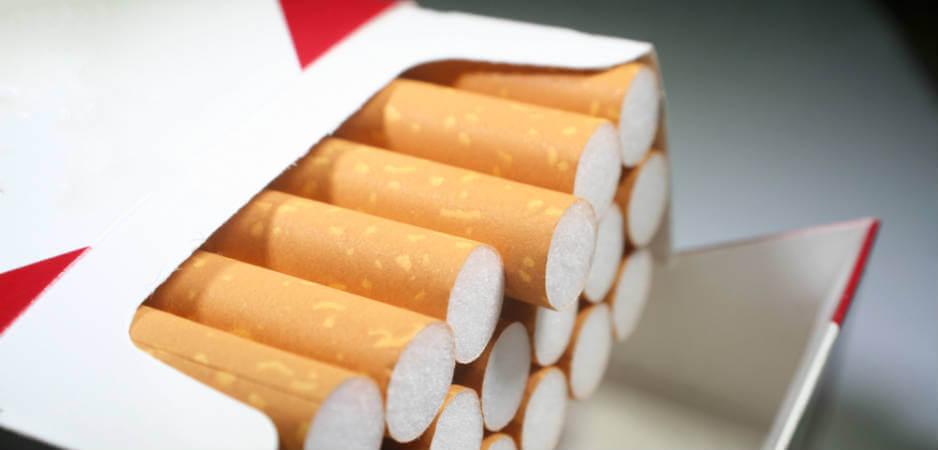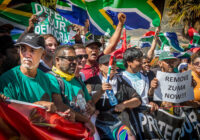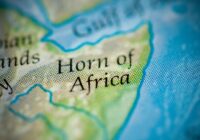Facing dwindling fortunes in Europe and America due to strong regulations, the tobacco industry has made Africa the new front line in its pursuit of profits.
Health officials and experts from across the planet descended on Cape Town, South Africa, on March 7 for the World Conference on Tobacco or Health (WCTOH), a triennial conference aimed at finding a solution to one of humanity’s deadliest preventable scourges: smoking. The conference is designed to highlight current developments in tobacco control and also push forward with efforts to scale down tobacco use in all its forms. This year’s choice of venue was highly significant, as Big Tobacco companies are increasingly turning their attention to Africa.
Former New York mayor and billionaire media mogul Michael Bloomberg used the occasion to announce a new global tobacco industry watchdog — Stopping Tobacco Organizations and Products (STOP) — and pledge $20 million in funding. As the World Health Organization’s (WHO) global ambassador for noncommunicable diseases (including smoking), Bloomberg used the conference platform to vent his frustration at tobacco companies and their duplicitousness in promoting “less harmful” alternatives that actually attract more smokers.
Examples abound. Philip Morris International (PMI), the maker of Marlboro, recently launched the Foundation for a Smoke-Free World, which critics have posited is neither independent nor credible. As Bloomberg told AFP: “Philip Morris International continues to aggressively market tobacco to children. They are fighting back against policies aimed at fighting smoking, including suing countries when they pass measures warning people about the dangers of tobacco.”
Nefarious Tactics
PMI is not the only company taking this approach, and many of the industry’s most nefarious tactics are aimed squarely at Africa. Facing dwindling fortunes in Europe and America due to strong regulations, the tobacco industry has made Africa the new front line in its pursuit of profits. The continent is home to the largest youth population in the world, making it the most vulnerable to tobacco industry tactics.
Though the overall prevalence rate of smoking in Africa is still relatively low at 14%, it also demonstrates the highest growth rate in the world. A 2010 survey by The Lancet showed a 220% increase in cigarette consumption in Mozambique over the prior 16 years, while Nigeria’s consumption rate grew by 60%. A 2013 Preventing Tobacco Epidemic in Africa expert committee report warns that “without comprehensive tobacco prevention and control policies, it is estimated that smoking prevalence in the African region will increase by nearly 39 percent by 2030, from 15.8 percent in 2010 to 21.9 percent — the largest expected regional increase globally.”
Tobacco prevention and control are two major weaknesses for most African states. While the continent still has the fewest tobacco-related deaths in the world, 90% of its population remained unprotected by smoke-free laws in 2009. Africa is bound for an entirely avoidable health crisis if things do not change. Unfortunately, the industry has resorted to its tried and tested series of (often unethical and even patently illegal) tactics to expand and solidify their market. Like in other parts of the world, the global tobacco firms use their influence — through lobbying, litigation and undermining of scientific evidence — to interfere with regulations and law enforcement mechanisms.
In 2015, for example, British American Tobacco (BAT) was accused of bribing a Kenyan politician with £50,000 ($70,000) to prevent a company, which was not under its control, from providing the country with technology that could stamp out tobacco smuggling. Compared to some of BAT’s other alleged misdeeds, the Kenya scandal seems downright tame. According to whistleblowers, BAT has also exploited instability in countries such as Somalia and South Sudan to sell its products and even built a secret town in the Democratic Republic of Congo to secretly grow tobacco crops.
Unfortunately, many African politicians and public office holders are themselves complicit in deliberately weakening or leaving unimplemented tobacco laws. Some are reputed to receive bribes or other material gratification from companies in exchange for this “service,” while others are allegedly active participants in illegal tobacco trading and tax evasion. In South Africa, the son of erstwhile President Jacob Zuma has been accused of manipulation and fraud in connection with his cigarette manufacturing business.
Smokescreens
Even though the industry is regularly implicated in cigarette smuggling, BAT and other companies often lambast governments for failing to take action. British American Tobacco South Africa (BATSA) launched a major “public awareness campaign” on the impact of illicit cigarettes last year. In the middle of the WCTOH conference, members of the national Food and Allied Workers Union (FAWU) marched on the South African Revenue Service’s offices to demand a “war on illicit trade crime syndicates.” Disturbingly, the FAWU parrots the industry’s position that higher taxes are to blame for an influx of illegal tobacco into the South African market.
This is just one grassroots example that demonstrates the industry’s expertise in creating smokescreens and twisting narratives. In reality, cheap illegal cigarettes prop up smoking rates. They also undermine public health strategies that use high tobacco taxes to dissuade young people from smoking. That is why the WHO’s advice diverges sharply from tobacco-industry talking points. Instead of lowering taxes, the WHO is clear that South Africa and other parties to the WHO’s Framework Convention on Tobacco Control should cooperate with each other (and not with the industry) to implement strong tracking and tracing systems to counter the global black market.
In this fractious context, choosing an African venue for the WCTOH sends a strong message of global solidarity. However, it will take more than just a conference to avert an emerging crisis. Governments, civil society, NGOs and international development partners need step up efforts to further implement the WHO’s proven policy recommendations on smoking cessation: eliminating the illicit tobacco trade, restricting sales to minors, leveraging the power of taxation, banning advertising and, perhaps most importantly of all, keeping the dishonest tobacco industry resolutely away from their decision-making.
The views expressed in this article are the author’s own and do not necessarily reflect Fair Observer’s editorial policy.
Photo Credit: ShutterstockProfessional / Shutterstock.com
Support Fair Observer
We rely on your support for our independence, diversity and quality.
For more than 10 years, Fair Observer has been free, fair and independent. No billionaire owns us, no advertisers control us. We are a reader-supported nonprofit. Unlike many other publications, we keep our content free for readers regardless of where they live or whether they can afford to pay. We have no paywalls and no ads.
In the post-truth era of fake news, echo chambers and filter bubbles, we publish a plurality of perspectives from around the world. Anyone can publish with us, but everyone goes through a rigorous editorial process. So, you get fact-checked, well-reasoned content instead of noise.
We publish 2,500+ voices from 90+ countries. We also conduct education and training programs
on subjects ranging from digital media and journalism to writing and critical thinking. This
doesn’t come cheap. Servers, editors, trainers and web developers cost
money.
Please consider supporting us on a regular basis as a recurring donor or a
sustaining member.
Will you support FO’s journalism?
We rely on your support for our independence, diversity and quality.







